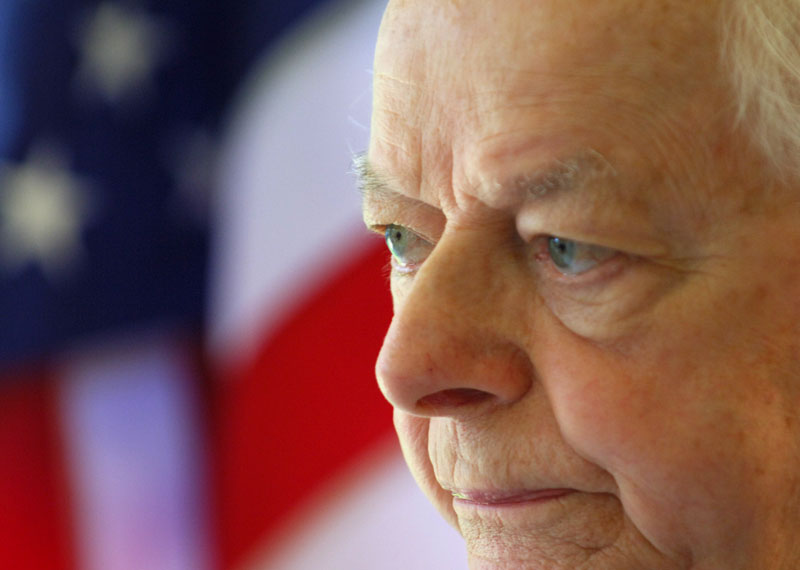The passing Monday of Sen. Robert Byrd of West Virginia at the age of 92 marks the end of an era in a variety of ways.
He was the longest-serving member of the U.S. Senate in the nation’s history, first elected to Congress in 1952 and the Senate in 1958, and his years in office spanned several eons in U.S. political history that covered the Vietnam War, the Civil Rights struggle, the fall of the Soviet Union and the rise of international terrorism.
A product of the New Deal and the old South, Byrd supported his party on Vietnam and opposed civil rights advances backed by a Southern president, Lyndon Johnson. He filibustered the Civil Rights Act of 1964 and opposed its 1965 update. And, in a time when the records of political hopefuls are scoured for any imperfections, his past affiliations included a well-recorded period as a recruiter and chapter leader for the Ku Klux Klan.
Yet, he came to support civil rights legislation and spoke forcefully against invading Iraq when other members of his party joined Republicans in authorizing President Bush’s military actions against Saddam Hussein.
He deployed his famous skills in oratory with repeated references to classical topics, including 14 speeches on the floor of the Senate dealing with the history of Rome and its Senate.
And he held an old-fashioned view of political patronage, using his chairmanship of the Appropriations Committee to steer billions of dollars to his home state — while taking care to ensure that highways, bridges, parks and buildings the money constructed bore the name of the senator who brought home the bacon.
In recent times, his health failing, he had to give up his powerful position and be transported by wheelchair to the Senate floor for votes in support of President Obama’s initiatives.
His loss inevitably is being evaluated in view of the Senate’s precarious balance (in terms of a filibuster) between 56 Democrats and two often-allied independents and 41 Republicans.
West Virginia’s Gov. Joe Manchin III, a Democrat, will name a replacement, but whether that person will serve until November or until 2012 remains unclear and could be decided in court.
Byrd’s career covered an era of transition in U.S. politics, and he participated in those changes in professional and personal ways. With his death closely following the loss of Sen. Ted Kennedy, a former rival transformed into a close political ally, the Senate will be a much different place.
Copy the Story Link
Send questions/comments to the editors.



Success. Please wait for the page to reload. If the page does not reload within 5 seconds, please refresh the page.
Enter your email and password to access comments.
Hi, to comment on stories you must . This profile is in addition to your subscription and website login.
Already have a commenting profile? .
Invalid username/password.
Please check your email to confirm and complete your registration.
Only subscribers are eligible to post comments. Please subscribe or login first for digital access. Here’s why.
Use the form below to reset your password. When you've submitted your account email, we will send an email with a reset code.